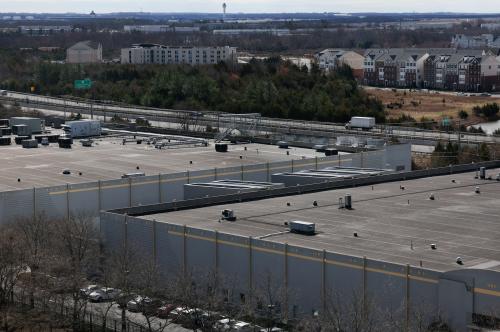Here are some recent news stories that TechTank staff have been following. To read analysis from Brookings fellows, you can follow the links to previous TechTank posts.
European Court of Justice ruling exempts Bitcoin from sales tax
On October 22, the European Court of Justice issued a ruling that exempts purchases of Bitcoin from a value added tax (VAT). The ruling treats purchases of Bitcoin much like the exchange of traditional currencies rather than the sale of a commercial product. The VAT exemption formalizes Bitcoin’s tax status in the EU, which may have contributed to the slow adoption of the virtual currency. Customers are more likely to make purchases with Bitcoin if they do not have to pay sales tax once to buy the currency and again to buy goods and services with it. However, the announcement will not change the issue of bitcoin’s volatile price, which rose above $300 after the ruling from a low of $177 earlier this year.
The White House sets new rules for federal government IT systems
For the first time in 15 years, The White House’s Office of Management and Budget (OMB) released new rules for the purchasing, management, and security of information technology (IT) systems used by federal agencies. The rule change attempts to fix problems with upgrading legacy IT systems that are inefficient and have security vulnerabilities. Planning ahead for major upgrades reduces their cost to taxpayers, as does breaking down IT projects into more manageable pieces and using existing services developed by other agencies. In addition to cost savings, the rules mandate a continuous monitoring approach to cybersecurity rather than a periodic review.
Read analysis on federal government IT projects from Brookings fellows Kevin Desouza and Niam Yaraghi.
Global Internet freedom in 2015
Global Internet freedom is essentially the uncensored, unhindered access to the global Internet. A recent report from Freedom House report shows that Internet freedom has been declining for the past five years. In 2015, 31% of the global internet population was deemed “free,” while 34.3% was deemed “not free.” The remainder is “partly free” (22.7%) or not assessed (12%). Governments recognize that blocks and filters are no longer very effective, so they are using other means of deterrence.
China was deemed the least free, with a score of 88 out of 100 (0=best). Iceland scored the best, with a score of 6. The United States scored 19. The topics most likely to be censored include corruption in top government and business officials, conflicts, opposition websites, and satire. Individuals were imprisoned in 40 out of the 65 countries for sharing information online about politics, religion, or society.
Google plans to launch Internet balloons in Indonesia
The study about Internet freedom above looks at individuals who have access to the Internet, however censored it may be. According to UN figures, fifty seven percent of the world’s population does not have any access to the Internet. In Indonesia, that figure rises seventy one percent of the population. Building network infrastructure there is exceptionally challenging because the country is made of more than 17,000 islands.
Google has partnered with three mobile network operators in Indonesia to test out providing Internet connections by balloons. This project is called Project Loon, and the test will run for a year. The balloons will fly at twice the altitude of commercial planes, and hundreds will be needed to cover each area. After that, as Mike Cassidy, the project leader of Project Loon, says, the sky is the limit.
Elsie Bjarnason contributed to this post.
The Brookings Institution is committed to quality, independence, and impact.
We are supported by a diverse array of funders. In line with our values and policies, each Brookings publication represents the sole views of its author(s).




Commentary
TechTank tracks global Internet freedom report, Google’s Internet balloons, and more
November 5, 2015